Wenlin Liu
Tailoring Generative AI Chatbots for Multiethnic Communities in Disaster Preparedness Communication: Extending the CASA Paradigm
Jun 12, 2024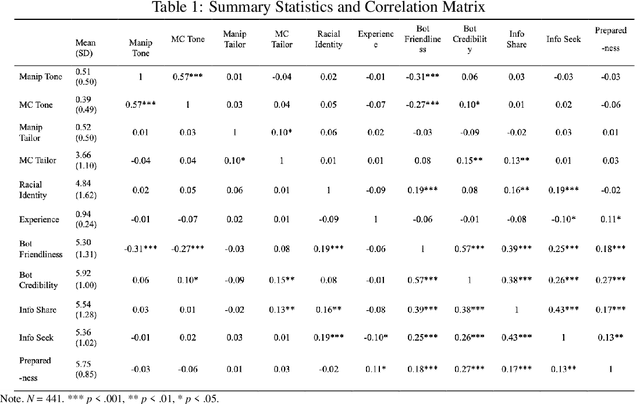
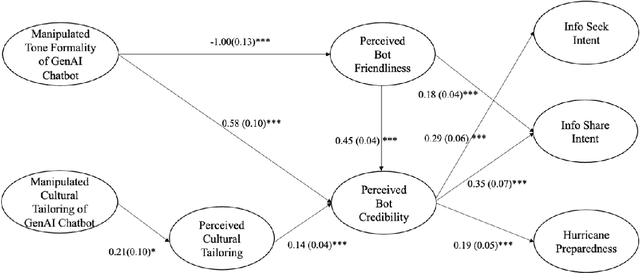
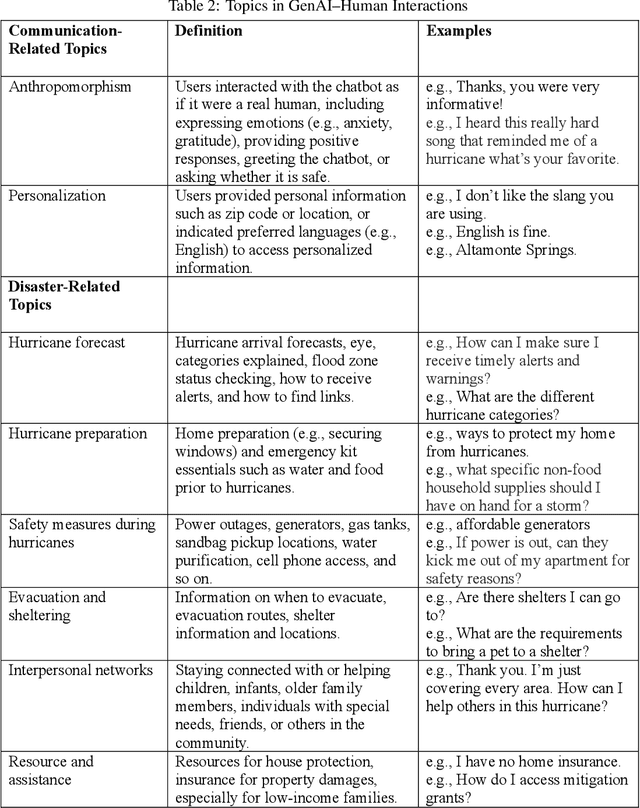
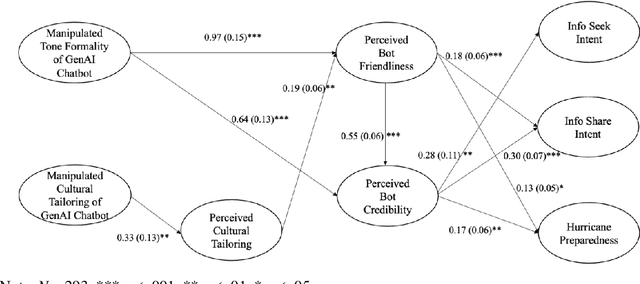
Abstract:This study is among the first to develop different prototypes of generative AI (GenAI) chatbots powered by GPT 4 to communicate hurricane preparedness information to diverse residents. Drawing from the Computers Are Social Actors (CASA) paradigm and the literature on disaster vulnerability and cultural tailoring, this study conducted a between-subjects experiment with 441 Black, Hispanic, and Caucasian residents of Florida. A computational analysis of chat logs (N = 7,848) shows that anthropomorphism and personalization are key communication topics in GenAI chatbot-user interactions. SEM results (N = 441) suggest that GenAI chatbots varying in tone formality and cultural tailoring significantly predict bot perceptions and, subsequently, hurricane preparedness outcomes. These results highlight the potential of using GenAI chatbots to improve diverse communities' disaster preparedness.
Dynamic Stochastic Ensemble with Adversarial Robust Lottery Ticket Subnetworks
Oct 06, 2022
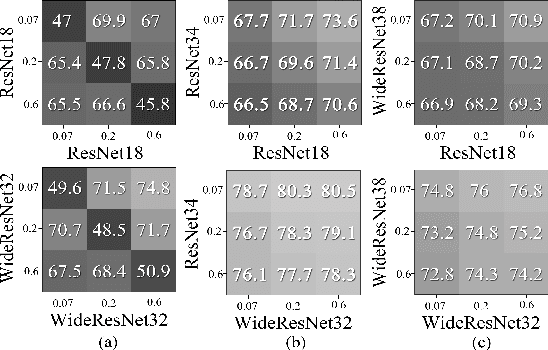
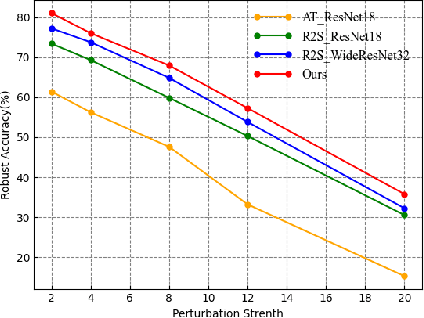

Abstract:Adversarial attacks are considered the intrinsic vulnerability of CNNs. Defense strategies designed for attacks have been stuck in the adversarial attack-defense arms race, reflecting the imbalance between attack and defense. Dynamic Defense Framework (DDF) recently changed the passive safety status quo based on the stochastic ensemble model. The diversity of subnetworks, an essential concern in the DDF, can be effectively evaluated by the adversarial transferability between different networks. Inspired by the poor adversarial transferability between subnetworks of scratch tickets with various remaining ratios, we propose a method to realize the dynamic stochastic ensemble defense strategy. We discover the adversarial transferable diversity between robust lottery ticket subnetworks drawn from different basic structures and sparsity. The experimental results suggest that our method achieves better robust and clean recognition accuracy by adversarial transferable diversity, which would decrease the reliability of attacks.
 Add to Chrome
Add to Chrome Add to Firefox
Add to Firefox Add to Edge
Add to Edge